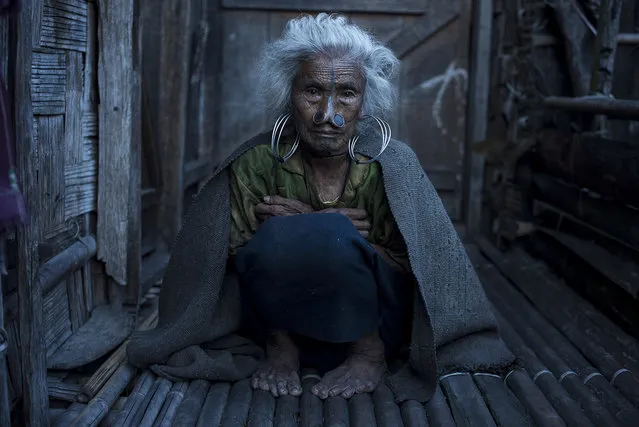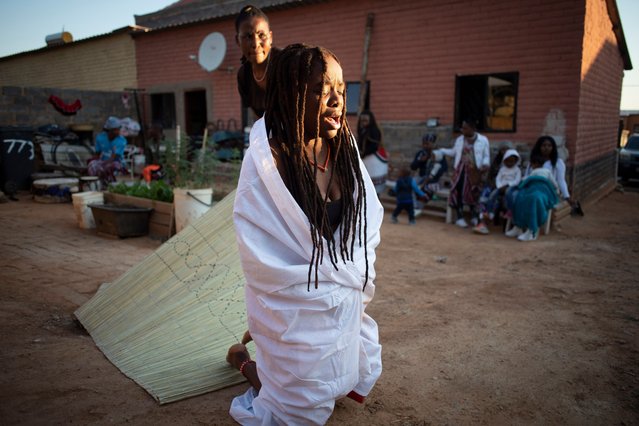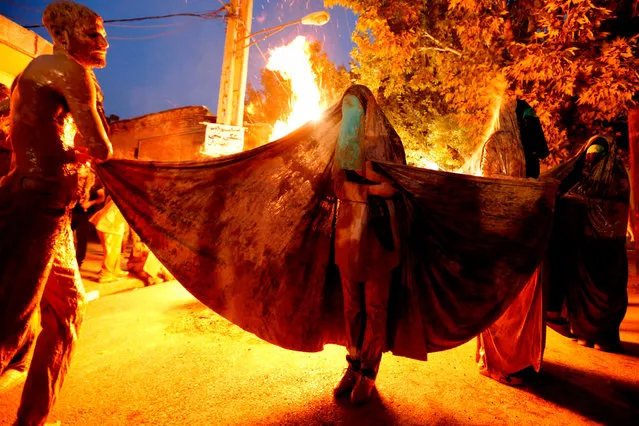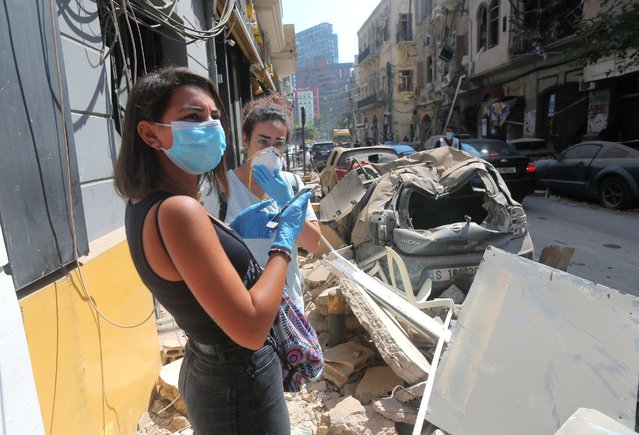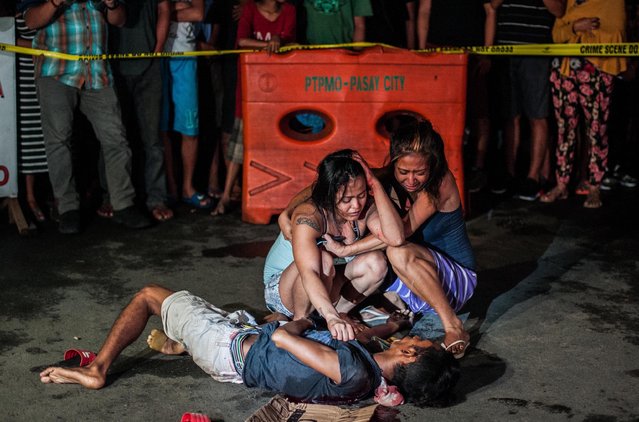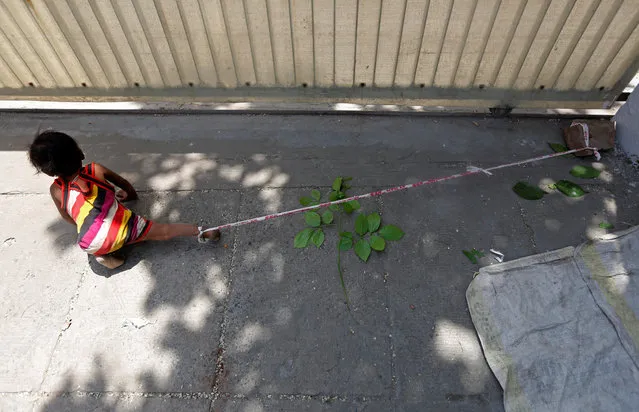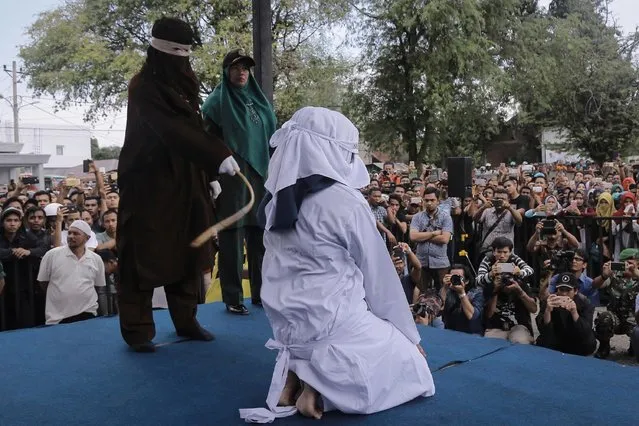
A Shariah law official whips a woman who is convicted of prostitution during a public caning outside a mosque in Banda Aceh, Indonesia, Friday, April 20, 2018. Indonesia's deeply conservative Aceh province on Friday caned several unmarried couples for showing affection in public and two women for prostitution before an enthusiastic audience of hundreds. The canings were possibly the last to be carried out before large crowds in Aceh after the province's governor announced earlier this month that the punishments would be moved indoors. (Photo by Heri Juanda/AP Photo)
23 Apr 2018 00:05:00,post received
0 comments

